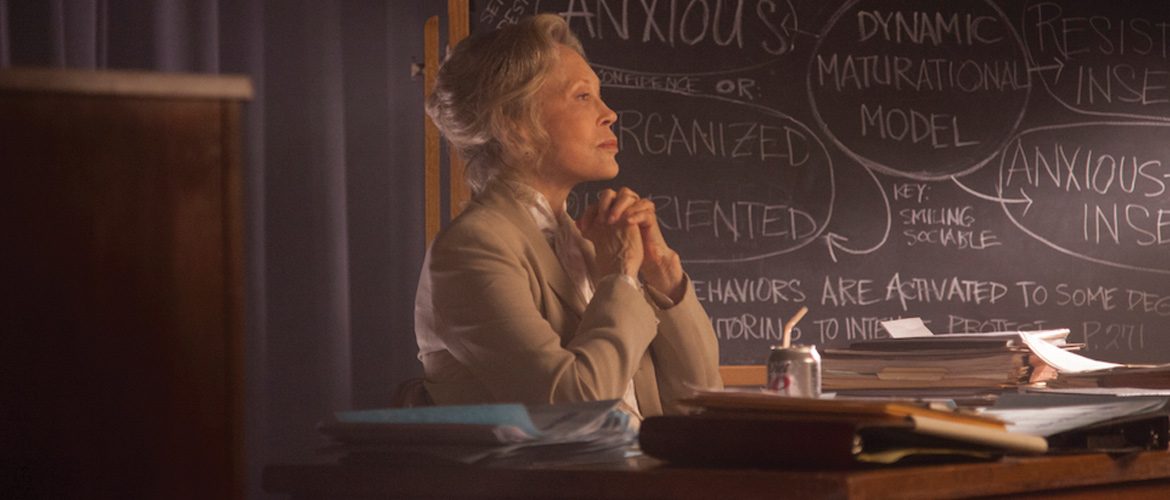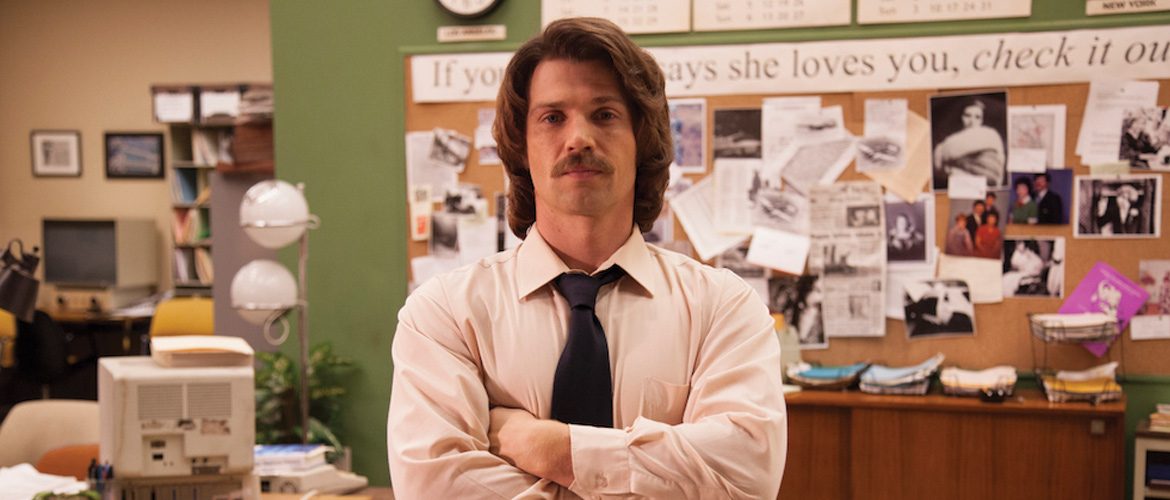By Diane Howard, Ph.D.
Based on the true story of an award-winning investigative journalist—and avowed atheist—who applies his well-honed journalistic and legal skills to disprove the newfound Christian faith of his wife…with unexpected, life-altering results, “The Case for Christ” comes to theaters in time for Easter. Lee Strobel, who earned a Master of Studies in Law degree from Yale Law School and was an award-winning journalist at the Chicago Tribune and courtroom analyst.
Strobel used his law experience and training to thoroughly study and build a case to discredit Jesus Christ that included historical, personal, and medical records with evidence of the life, crucifixion, and resurrection of Jesus. Lee “cross-examined” leading experts. His careful research and scrutiny led him to unexpected conclusions and results.
This captivating narrative drama is based on a true story and takes place in 1980, when Lee Strobel’s investigative reporting earned him a promotion to legal editor at the Chicago Tribune. At the same time, however, his home life was a struggle, because his wife, Leslie, who had also been an agnostic, found faith in Christ. Lee determined to use his journalistic and legal training to disprove the claims of Christianity, which pitted his resolute atheism against his wife’s growing faith.
“The Case for Christ” is based on Strobel’s bestselling book of the same name and is a dramatic and heartfelt portrayal of his compelling journey. This engaging story is for everyone who has ever pondered the existence of God and the evidence related to the life, crucifixion, and resurrection of Jesus Christ.
The movie’s director is Jonathan M. Gunn (“Do You Believe?”) and the writer is Brian Bird (“When Calls the Heart”). Producers include Michael Scott, David A.R. White, Karl Horstmann, and Brittany Lefebvre. The cast includes Mike Vogel (“The Help”) as Lee Strobel, Erika Christensen (“Parenthood”) as Leslie Strobel, Faye Dunaway (“Bonnie and Clyde”) as Dr. Roberta Waters, Robert Forster (“Jackie Brown”) as Walter Strobel, Frankie Faison (“The Wire”) as Joe Dubois, and L. Scott Caldwell (“Lost”) as Alfie Davis. The movie was released in theaters nationwide on April 7.
I was able to conduct an exclusive interview with Lee and Leslie Strobel.
DH: Those who see the Fathom event will receive a free download of the first two chapters of The Case for Christ book. Is this an updated version? If so does it have new features?
Lee: Yes, this Movie Edition of The Case for Christ book is the newly revised updated version of the 1998 classic with more evidence, archeological findings, and manuscript findings.
DH: Lee, you now share that in reaching unbelievers that “1 Peter 3:15 says ‘Do it gently and respectfully.’ We’re told in Scripture how to do [evangelism]; not to slap people over the face, but to be gentle and respectful.” Leslie, the movie depicts how you came to faith, as you were befriended by a woman who lived out her faith, spoke of it easily, and didn’t force it on anyone. How did she relate to you?
Leslie: Linda, a nurse, was the main link. She was my mentor. She would let me talk and vent, but she guided the conversation away from being against Lee, God, or anyone. She taught me how to tap into God’s power, so that I could diffuse tension with love, swallow my pride, and show God’s grace, mercy, and love.
DH: Leslie, the movie depicts how you effectively prayed for your husband with the verse, “Moreover, I will give you a new heart and put a new spirit within you; and I will remove the heart of stone from your flesh and give you a heart of flesh…” (Ezekiel 36:26) Can you help us with effective prayers for the belief of unbelievers?
Leslie: Our book, “Surviving a Spiritual Mismatch in Marriage” provides a book prayer guide and Biblical verses.
DH: Leslie, the movie also depicted how you were won over by love. Do you think that Linda’s role model and attitude is such that it could win over unbelievers in general?
Leslie and Lee: Yes.
DH: The movie depicted the effective attitudes, prayers, and behaviors of those in Leslie’s church towards Lee before he became a believer. Is Linda’s example (and those of the church like her) effective ways for churches to relate to unbelievers, especially those related to members of the church?
Leslie and Lee: Yes.
DH: What have you learned about encouraging or facilitating the belief of non-believers?
Lee: I think the key in our culture today is not debate—it’s dialogue. It’s conversations; it’s relationships; it’s doing more listening than talking. It’s sitting down with someone who has different views than we do and having a friendship, having a conversation, and validating them as people made in the image of God and being on a spiritual journey, and allowing them the elbow room to ask questions and to investigate. The personal relational side is most important.
We are in a Golden Era of Christian apologetics, which is having a comeback. There is better scholarship today. Truth is on our side. Truth matters. We live in an age where truth is a little slippery, but we, fortunately, stand on a solid rock. And we can proclaim that in a way that’s winsome and attractive, but still Scripturally accurate, and I think there’s a generation out there that wants to have their feet on solid ground.
Apologetics is also making a comeback among student ministries…because their atheist friends are raising a lot of questions, and sometimes the churches haven’t done a great job in training us in understanding not just what we believe, but why we believe it.
DH: Lee, do you think that your negative relationship with your father affected your atheistic beliefs? In your view how can past personal history affect one’s faith and how can one overcome negative personal history?
Lee: Studies have shown that most of the famous atheists of history—Camus, Sarte, Nietzsche, Freud, Voltaire, Wells, Feuerbach—all had a father that either died when they were young, divorced their mother when they were young, or with whom they had a terrible relationship. Our view of our earthly father can affect a magnified view of our heavenly father. Imagining what the perfect father is like can help us have a proper view of God. In multi-generational studies of the effect of a father on faith, the key harmful issue has been identified as the coldness and distance of the father. My poor relationship with my father negatively affected me, but I also had personal moral and emotional issues.
DH: What is a key element in churches to reach unbelievers?
Lee: A key factor is the senior leadership. The key leaders need to have a heart for the lost. Values are caught, not taught. I pray for pastors virtually every day, because I know that apart from the work of God in your heart, it is an impossible job to be a pastor. But with His power and with the Holy Spirit, God is bringing great change into our land and into our hearts.
DH: How can the church help the world see us as people who deeply love others?
Lee: The church needs to give loving service paired with the Gospel.
DH: How do you think God was pursuing you?
Lee: God provides a specific tether to help us find Him. He meets us where we are. I needed facts and evidence. Leslie needed something different.
“The Case for Christ” is an effective outreach tool that churches and their members can use to invite friends, family and neighbors to see a powerful portrayal of the Gospel and the evidence for Jesus Christ as the Son of God on the big screen. Research shows that 35% of all people who see a faith-based movie are unchurched, which indicates that thy might find a movie format a safe way for them to seek answers about faith. Lee Strobel says, “A lot of people won’t read a book, they may not yet come to church, but they’ll go to a movie.”
Strobel’s investigative research provides the strongest evidence of the cornerstone of the Christian faith, the crucifixion and resurrection of Jesus Christ. With “The Case for Christ” movie and apologetic study, moviegoers and churches can help grow their outreach and discipleship. This movie equips believers to fulfill the mandate to “…Always be prepared to give an answer to everyone who asks you to give the reason for the hope that you have…” (1 Peter 3:15)
Lee Strobel and Pure Flix provide outreach tools and curricula for using this movie during the Easter Season. They present videos on how to invite others to movies and how to talk afterwards. For conversations with those who attend the movie or those who participate in small groups of faith discovery, they suggest common guiding principles. Lee has said that people want to express their opinions. He suggests that facilitators ask more questions rather than give answers. Following a question, a facilitator can ask, “Why do you ask that question?” to get to the heart of the matter for the questioner.
Strobel claims that in spiritual discovery groups using this approach, tracked over time, with 1100 in these groups, 80% who stayed with the group became believers. He says that conversations—even in groups—are not debates, but dialogue and that relationships are of first importance. Listening and caring are critical. We need to communicate gently and respectfully. He says that we can best build the church by letting the world see that we deeply love, rather than standing up for our own rights. We need to be authentic and express love through practical ministries while also sharing Gospel. We need to serve with humility.
Strobel is the best-selling author of more than twenty books. His classic, “The Case for Christ”, is a perennial favorite. For the last twenty-five years, his life’s work has been to share the evidence that supports the truth and claims of Christianity and to equip believers to share their faith with the people they know and love. Lee is currently a teaching pastor at Woodlands Church in Texas, and he recently joined the faculty at Houston Baptist University as a Professor of Christian Thought.
Strobel’s recent release, “The Case for Grace,” just won the 2016 Nonfiction Book of the Year from the EPCA (Evangelical Christian Publishers Association). For the last twenty-five years, his life’s work has been to share the evidence that supports the truth and claims of Christianity and to equip believers to share their faith with the people they know and love.
Lee earned his Bachelor of Journalism from the University of Missouri and his Master of Studies in Law at Yale Law School. He was a journalist for fourteen years at The Chicago Tribune and other newspapers, winning Illinois’ highest honor for public service journalism from United Press International. He also led a team that won UPI’s top award for investigative reporting in Illinois.
Lee has been a featured guest on national networks including ABC, Fox, Discovery, PBS, and CNN. He was the host of Faith Under Fire, a provocative program that brought together some of the brightest Christians and skeptics to debate issues central to the Christian faith. He also appeared in the feature film, “God’s Not Dead 2,” as an expert witness for the defense. As part of his speaking ministry, Lee travels across the country (and sometimes the world) sharing his testimony, encouraging believers, and challenging skeptics. He regularly speaks at conferences, commencements, fundraisers, and other major events.
Strobel studied the historical record for Christ which included evidence from eyewitnesses, documentaries and biographies, corroborating sources, science and more. He researched the personal profile of Jesus Christ, which included identity and psychological evidence, as well as evidence that He fulfilled the attributes of God and matched the description of the prophesied Messiah. He also investigated the crucifixion and resurrection of Jesus Christ, which included medical evidence, evidence of the missing body, evidence of His appearances after His death, and circumstantial evidence.
Further, Strobel “cross-examined” experts and recognized authorities in their own fields of study related to his research. Strobel interviewed leading scholars on Evangelicalism and Christianity, offering them an opportunity to defend their views. Contrary to his intent, Strobel’s investigative efforts convinced him of Christianity’s reliability. After compiling and critically examining the evidence for himself, Strobel became a Christian. Surprised and stunned by his findings, he organized the evidence he found into “The Case for Christ.” The book not only won the Gold Medallion Book Award for excellence, it became a worldwide best-seller and launched Strobel in a new direction, that of defending Christianity himself.
The recent film (that is based on the book) gives the dramatic story behind the story of this man with personal animosity for Christianity who used journalistic and legal techniques to evaluate its claims with research and interviews with leading medical, historic, psychological leaders and more, and it draws on the true story of Lee and his wife, Leslie, whose marriage struggled mightily as her growing faith collided with his determined atheism. The dramatic retelling of their journey offers heart and a human touch on the in-depth research Lee Strobel conducted. “The Case for Christ is an engaging story that will inspire everyone who sees it: believers, those who are searching for answers, and even those who are where Lee Strobel once was. You can learn more about the film, watch the trailer, and subscribe for updates at TheCaseForChristMovie.com.
Lee Strobel summed it up, “The verse that led me to faith is John 1:12: ‘Believe plus receive equals become.’ It’s not enough just to generally be in agreement with Christian doctrine. I have to receive this free gift of forgiveness and eternal life that Jesus purchased on the cross when He died as our substitute to pay for all of our sin.” John 1:12 (Believe, Receive, Become)…





